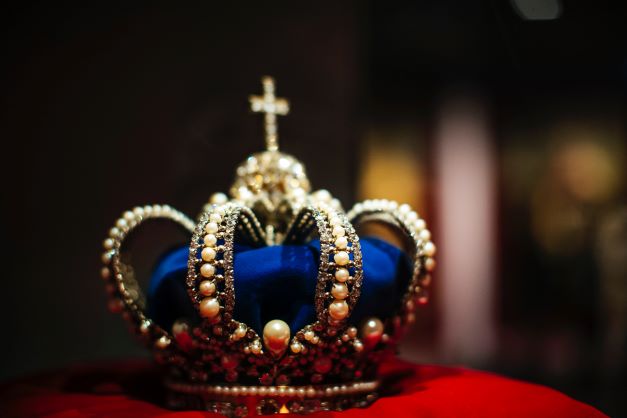Liberty Matters
Common Threads in Four Reflections on the Development of Constitutional Monarchy
 Many thanks for my fellow contributors in this Liberty Fund forum on monarchy and liberty for their thoughtful and thought-provoking pieces, all connected by a common inspiration in the recent passing of Queen Elizabeth II. Each of my colleagues took their reflections on this momentous event in very different directions, exploring the place of monarchy in modern society in different ways.
Many thanks for my fellow contributors in this Liberty Fund forum on monarchy and liberty for their thoughtful and thought-provoking pieces, all connected by a common inspiration in the recent passing of Queen Elizabeth II. Each of my colleagues took their reflections on this momentous event in very different directions, exploring the place of monarchy in modern society in different ways.I found a great deal of common ground between my own piece and Stephen Davies’ contribution on monarchy and liberal order. Both of us reflected on the advent of modern constitutional monarchies or “crowned republics” which he felt was a more appropriate way of describing many of the monarchies of modern Europe. Both of us also reflected on the durability of monarchy and the necessity of change and reform in order to endure. I thought Davies’ suggestion that the durability of monarchy could be due to its familial connection which speaks to a core element of society, was intriguing. I also found myself nodding in agreement when he discussed the value of monarchy as a “corrective” to modern short-termist politics and as a basis which was “more likely to promote and sustain liberal ends than a democracy”—certainly some of the statistics I featured in my piece concurred with that assessment.
Davies’ discussion of constitutional monarchy also resonated well with Helen Dale’s piece “Goodbye Mrs. Queen”. While Dale’s highly reflective piece was grounded in a legal basis, her brief history of the development of constitutional monarchy connected well with both Davies’ and my discussions on that topic. Dale and Davies also had a key point of agreement regarding ceremony. Davies noted that there was value in separating out the sacral aspects of politics, which a monarchy could fulfil in state visits, services of thanksgiving or anniversaries of important events. Dale concurred, ending her piece by stating “Far better a crowned republic than somewhere where pageantry makes common cause with power.”
Dale’s piece brought in reactions to Queen Elizabeth’s reign and passing in former colonies like the USA and particularly Australia. Here, we have a clear link to Carolyn Harris’ contribution which reflected on the transition from the British empire to the Commonwealth and the role of Elizabeth II in sustaining and promoting this change. Harris noted the role of Elizabeth II in making connections across the globe in her royal tours and her diplomatic influence—demonstrating the “soft power” of constitutional monarchy and how it can continue to add value in a liberal, modern context.
In sum, I thoroughly enjoyed reading the contributions of my colleagues in this Liberty Fund forum. While we all took our reflections on monarchy and liberty in different directions, there was far more common ground and connection, than dissonance and dispute. Indeed, I believe all of us provided evidence that monarchy and liberty can be completely compatible. While it is an institution with a very long history, it is more than a relic from a bygone age—if monarchy can continue to adapt to reflect the changes in society, it can form a positive basis for a modern, liberal society.
Copyright and Fair Use Statement
“Liberty Matters” is the copyright of Liberty Fund, Inc. This material is put on line to further the educational goals of Liberty Fund, Inc. These essays and responses may be quoted and otherwise used under “fair use” provisions for educational and academic purposes. To reprint these essays in course booklets requires the prior permission of Liberty Fund, Inc. Please contact oll@libertyfund.org if you have any questions.